1. What are the most significant engagements in your life, and why are they meaningful to you?
I have been lucky in my life to be part of a close, caring, mutual support community. Especially over the last 10 years, this community has given me the opportunity to consistently strive across many domains. The close relationships around me have both supported and inspired me to lean into a journey of actualization. I am extremely grateful to have this life chance to grow in this manner, despite the frustration and challenges that come along with growth. To go on the journey of trying to give back to ever expanding communities, is a meaningful venture for me.
This community has helped me foster practices of curiosity, creativity, opennness to experience, vulnerability, honesty, and direct communication. In both my work and personal life, continuing to practice these traits have meaningfully accelerated my ability to learn about both myself and the world we live in.
2. What resources (books/ films) have been most influential for you? In what ways?
“This Changes Everything” by Naomi Klein opened my eyes to the state of the planet. It was the first time I had seriously considered the impact of climate change – its history, our current state, and where we could be heading. This along with “Damned Nations” by Samantha Nutt shook my world view deeply, making me realize both the depth of suffering and seriousness of the threat to life on this planet. Not only is our situation serious, but our best intentions, if not considered carefully, can cause even more suffering.
“The Patterning Instinct” by Jeremy Lent taught me so much about how culture exists outside of us, but pervades our minds in so many ways we are not aware of. The root metaphors behind how we operate heavily influence our thinking and conduct in this world. While we are bound to this programming, we are not condemned by it. Progressive change is possible, with a multitude of disciplines and the guide of history, to transcend our programming and the accompanying stories which influence our lives and the life on this planet so much.
Lastly, “In the Realm of Hungry Ghosts” by Gabor Mate taught me so much about addiction, connection, suffering, and the shadow side of our civil society. This book showed me the effects of our emotional wounding, and conversely, our emotional nurturing.
3. What influence has your learning with Human Venture Leadership had on you?
HVL deeply changed how I thought about the world, affecting my perspective of my role and responsibility as a human on this planet. Learning often starts with simply being aware. With the curated resources from HVL, I started a journey of bearing witness to the truth. My eyes have been opened to the waste, suffering and injustice in this world, and I’ve learned that it so often comes from our ignorance.
I’ve learned how to orient my learning towards the work that needs to be done, if we are to try get through this century equitably. It’s not easy, but not impossible either. It is not hopeless to engage with big questions; there is a path and a process. This process is a framework about learning, and learning about learning. My learning has improved not by being given a map of where to go, but in how to strive, and how to learn when you have no guide posts.
4. What have you learned about the kind of leadership the world needs?
My view of leadership certainly changed as I have become more involved in the HVL community. I had a very simple view of leadership – one focused on known problems and agreeing about rational solutions. I’ve now learned that leadership is a lot harder, and requires much more discipline, if the group you are leading cannot actually see the problem (or doesn’t want to see the problem).
We need leaders who can pioneer at the edge of human and social development. This requires moral courage, as this space can often be quite hostile. The type of leaders we need, also need to comprehensively look at our situation. To go beyond conventional leadership, we need to comprehensively study history, the current dynamics, and where we could be headed.
5. What are your hopes for the future?
I hope that we can strive towards being the best ancestors we can be. I hope we can learn to relate better to one another; to cherish life on this planet. I hope we can connect our experiences, learn wisely, and keep going on the search of a better world.

